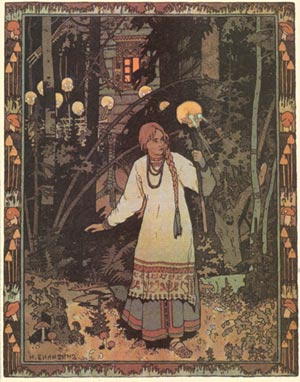When I was growing up, I read only fantasy and science fiction, and science fiction was really more in the way of filler, to be consumed when fantasy wasn't available. It's not that I didn't like science fiction, it's just that my mind was shaped to fit Lord of the Rings by my obsessive readings of the same, and so I looked always for more of that sort of thing. The world is of course full of LotR knock offs and imitators, so I had no trouble finding them. In some sense, every writer of fantasy works in the building that Tolkien made. And that, I would say, is the greatest issue with fantasy.
Quick quiz: someone says they're reading a fantasy novel, but doesn't tell you anything else. What do you think about? Heroes going on a quest or fighting some evil, right? And what else? Kings and kingdoms, swords and horses, nobles in castles, grim forests and high snowy mountains. And all of that would be more right than wrong, because typically English-language fantasy exists in a very particular place: 14th century Northern Europe.
This is not exclusively or only true, mind you. There are writers like Guy Gavriel Kay who work with other settings (after starting as a Tolkien chronicler, no less). But most "innovative" fantasy involves twists and quirks on the 14CNE (14th Century Northern Europe) setting rather than something different. And the world is full of other inspirational options, from the very similar to the rather different.
Here's just a few very similar inspirations: Dark Ages Northern Europe with a rougher and more primitive feel; Medieval Space, sophisticated and complicated, warmer and sunnier; Medieval Russia, isolated and rural, superstitious and vast.
More distinct inspirations: Imperial China, scholarly and traditional, confident of superiority, rich with custom and with a viewpoint strikingly different; Medieval Japan, a nearly wild society with effete gentlemen and hidden ladies, derivative of other cultures but bizarrely innovative, poetic and beset by ghosts and demons; classical India, hierarchical and worldly, rich and innovative, absorbing other cultures.
And notions far-fetched from the 14CNE perspective: sub Saharan Africa, with tribes and chieftans, rituals and spirituality; pre-Columbian America, with so very many options, but an almost complete lack of the familiar domesticated animals and metalworks that help to define 14CNE; Tibet, a barely livable landscape of warring priests and demons haunted mountains, violent and vibrantly alive on the edge of survivability.
Taking any of those and building your fantasy setting from it would give you a notably different and much more unique starting point. Imagine, if you will, the Lord of the Rings taking place in pre-Columbian Central America; or Song of Ice and Fire in a world based off Fuedal Japan instead of Fuedal Europe; or Boneshaker set during the Taipeng Rebellion in China instead of the American Civil War. (Not that there's anything wrong with their current settings for any of them, mind you.)
The world's a big place. And while fantasy doesn't always (or even often) take occur in the world we know, there's no reason for it to stick so close to home as it does.



